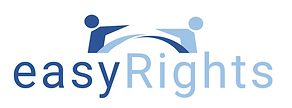easyRights hosts its Final Conference in Krems, Austria
- Laura Gavrilut
- Dec 7, 2022
- 2 min read

The easyRights final conference took place on the 27th and 28th of September 2022 in Krems, Austria, hosted by the University of Continuing Education, Danube University, as project partner. Embedded in the broader Austrian Migration Conference “Globalization of Borders - Borders of Globalization: Migration between global crises and local dynamics”, the easyRights final event allowed the partners, invited experts and participants to discuss the key topics, activities and results of the project.
As introduced by Prof. Mathias Czaika from the Department of Migration and Globalisation in his opening statement, bordering and debordering processes do not only involve physical frontiers, and public services may well be considered another, yet less visible, wall between migrants and their rights. What does facilitating the access to public services mean for the society more broadly? How can we make sure that migrants and asylum seekers have a fair chance to access the rights they are entitled to? What are the remaining challenges? These questions livened up the discussions in the three easyRightss panels with, among others, Prof. Gudrun Biffl, Prof. Peter Scholten and Dr. Peter Slominski as key discussants, and shaped the main takeaways from the final conference.
Inclusion was the first keyword of the open debate. The high degree of uncertainty, complexity, and fragmentation of the service infrastructure, blurs the boundaries of what is allowed and accessible and what is not, it creates filters to integration and inclusion. Support and extra assistance for migrants and asylum seekers is especially needed during that phase of the integration process preceding the formal undertaking of migrants´ demands by public institutions in order to prevent exclusionary dynamics. Targeted tools to reduce uncertainty such as those developed through the easyRights project may have a strong positive impact in terms of inclusion. Second, improving the access to the public system is part and parcel of democratization efforts. It allows migrants to interact on an equal basis with host societies and, by doing so, it does not only (re)shape the integration system of European states but also the modus vivendi of European democracies. Third, good co-creation entails going beyond a methodological choice to embrace co-creation as a norm. This involves de-constructing assumptions and power relations, bringing in others´ views and voices not only because it is cost-effective, but also because it is the only way to create public value. Eventually, this approach builds on, and at the same time leads to, trust and empowerment, as well as to contextualised tools rather than one size fits all solutions across public administration may not work in all settings.
The easyRights final conference formally closed the activities of the project, but also opened new perspectives. The project partners, the discussants and the participants left the venue with a committed willingness to keep the debate alive and to further explore how technologies and co-creation approaches can be employed to foster inclusive services and improve migrants´ - but also citizens more broadly - lives and access to their rights.




Comments